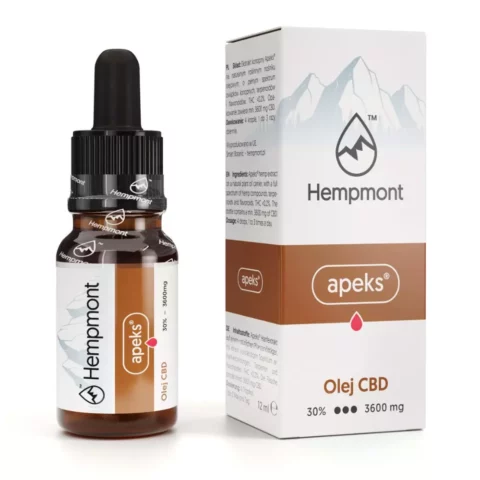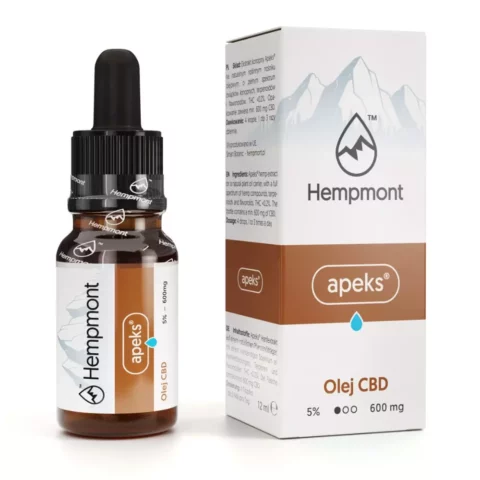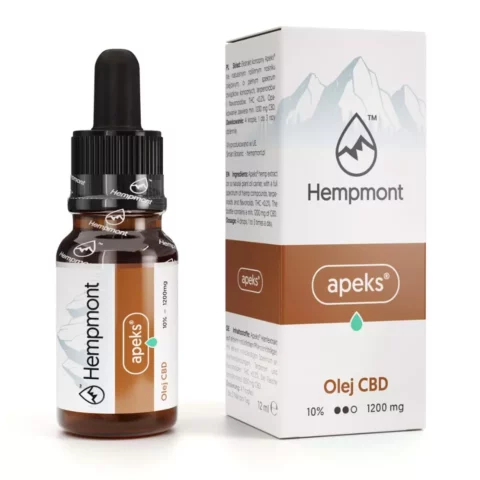
- 14 March 2023
- 0 comments
- 1 Wyświetlenie
Nowadays, pain is one of the most common symptoms we encounter on a daily basis. Due to stress, an inappropriate lifestyle, environmental pollution, inadequate diet or lack of physical activity, many people suffer from various types of pain. One of the most common types of pain is toothachewhich can be very bothersome and affect our quality of life. Toothache can have various causes, such as inflammation around the tooth, decay, trauma or infection. Without doubt, it is one of the most intractable forms of pain that many people experience at least once in their lives. Although prevention undoubtedly plays a major role, even people who take the greatest care of their teeth can suffer from this unpleasant condition. Although, of course, the first thought that comes to mind when dealing with this kind of pain is to go to the dentist, this is not always possible or we simply want to try to deal with the pain at home first. We then look for something that will not only eliminate the pain itself, but also reduce inflammation. This is where using CBD for toothache comes to the rescue? How does CBD help for a toothache? Does CBD help with toothache? How do you use CBD for a toothache? These and other questions can be answered in the article below.
Toothache - causes and home remedies
Toothache is an ailment that can have various causes. Most commonly, it is caused by inflammation around the tooth or the tooth itself, infection, trauma or decay. Toothache can occur suddenly and be very intense or gradually increase and be mild or moderate. It may be accompanied by swelling, inflammation of the gums, and sensitivity to heat, cold or sweets. Most often, dental intervention is then needed. Depending on the cause of the pain, treatment may include the use of antibiotics, painkillers, root canal treatment, tooth extraction or other procedures. It is important not to underestimate a toothache and to consult a dentist as soon as possible to determine the cause of the pain and implement appropriate treatment.
However, there are also cases where such a visit is not possible or during milder symptoms of toothache, various home methods can be used, such as applying ice to the painful area, using widely available painkillers, rinsing the mouth with sea salt with sage or hydrogen peroxide, and using natural painkillers such as cloves, peppermint oil or tea tree oil and just a well-known cannabidiol such as CBD.
How CBD works for toothache
CBD works on toothache in several ways. Firstly, CBD affects the endocannabinoid system, which is involved in regulating pain, mood, appetite and other functions. CBD's action on the endocannabinoid system can help reduce tooth pain, as the substance can affect pain receptors, reducing the transmission of pain signals to the brain. The endocannabinoid system, which is involved in the regulation of various bodily functions, including pain sensation. CBD affects CB1 and CB2 receptors in this system, which may help to relieve pain. CB1 is primarily found in the brain and CB2 in the immune system, but both types of receptors are also found in other tissues of the body. Endocannabinoids act on these receptors to regulate many bodily functions, such as the transmission of nerve signals, mood regulation, pain relief, appetite control and the regulation of inflammatory processes, for example. And this is how CBD has an analgesic effect throughout the human body.
In addition, CBD can affect other systems and processes, such as:
- Serotonin 5-HT1A receptor systemwhich is associated with mood regulation and pain perception
- Vanilloid receptors TRPV1which are related to body temperature regulation and pain perception
- Adenosine A2A receptor systemwhich is associated with the regulation of inflammation and pain sensation
By affecting these systems, CBD can reduce the sensation of pain and reduce inflammation, which contributes to pain relief.
Secondly, CBD has anti-inflammatory properties that reduce inflammation around the tooth, which can help to relieve pain. It influences the endocannabinoid system (ECS): CBD works by influencing the endocannabinoid system, which is responsible for maintaining the body's homeostasis. The ECS contains the cannabinoid receptors CB1 and CB2, which interactively influence inflammatory processes.... CBD has anti-inflammatory effects by, among other things:
- Blocking the immune system's response to inflammatory stimuli. In animal studies, it has been shown that CBD can reduce the number of neutrophils and T-lymphocytes, which are involved in the inflammatory process.
- Reducing free radical production: CBD has strong antioxidant properties and counteracts the production of free radicals, which are associated with inflammatory reactions in the body.
- inhibiting the activity of inflammatory enzymes such as cyclooxygenase-2 (COX-2) and lipoxygenase (LOX), which are involved in the inflammatory process.
- Effects on lipid synthesis: reduces the synthesis of lipids that are involved in the inflammatory process; also reduces the production of arachidonic acid, which is a precursor of pro-inflammatory cytokines.
- regulating the production of cytokines, which are substances involved in the inflammatory process. In in vitro studies, CBD showed the ability to decrease the production of pro-inflammatory cytokines, such as interleukin 1β and interleukin 6, and increase the production of anti-inflammatory cytokines, such as interleukin 10.
Thirdly, CBD can help relieve stress and tension, which often accompany toothache. Stress and tension can exacerbate the experience of pain, and CBD can help reduce these symptoms. This cannabidiol modulates the production of cortisol (this is the stress hormone that is released in the body in response to stress). The use of CBD significantly improves the quality of sleep-it is the chronic or even sometimes sporadic lack of sleep and its disruption that often leads to stress. CBD can have an anti-anxiety effect, reducing feelings of anxiety by affecting various neurological pathways, including the serotonin and GABA systems.
CBD oil for toothache
In 2020 a study was conducted on mice, which showed that topical (skin) application of CBD reduced neuropathic pain, which is caused by dental nerve damage. These results suggest that CBD may be effective in relieving pain associated with dental nerve damage.
In addition, there are studies that suggest CBD may have anti-inflammatory and analgesic effects, which may result in the relief of toothache symptoms. In one 2015 study, CBD has been shown to help reduce inflammation in the mouth of patients with periodontitis, which definitely has potential for ailments of similar aetiology.
Other studies have shown that CBD can act as an anti-inflammatory agent, which aids in relieving the inflammation associated with toothache. In one study conducted on rats, researchers found that CBD reduced inflammation in teeth, which Consequently, it has virtually eliminated the pain associated with the infection.
How to use CBD for toothache?
When it comes to using CBD to relieve toothache, there are several ways to do so. You can apply CBD oil in the traditional way, orally, preferably under the tongue, and enjoy its beneficial effects on the whole body. It is a good idea to apply directly to the aching tooth or gum- here the effects will be similar to the traditional application, but this method may have a quicker effect. Another way to use CBD for toothache is to use CBD toothpaste, at the frequency you have been using so far, which can help reduce inflammation in the mouth. All you need to do is add a drop or two to your toothpaste brush and brush your teeth as you normally would, paying special attention to the sore area. Another additional way to relieve pain is to use a mouthwash with CBD and, for example, sea salt or sage.
It is important to remember that if you have a serious and chronic toothache, you should not delay going to the dentist. Sometimes such a visit can save a tooth from surgical extraction. Of course, the most important thing is prevention - regular visits to the dentist and oral hygiene are key to maintaining healthy teeth and avoiding pain.
Bibliography:
'Cannabidiol for Pain Treatment: Focus on Pharmacology and Mechanism of Action' 2020 authors J.Mlost, M.Bryk, https://pubmed.ncbi.nlm.nih.gov/33238607/
"Cannabidiol Is a Potential Therapeutic for the Affective-Motivational Dimension of Incision Pain in Rats" 2017, authors K.Genaro, D.Fabris, A.L.F. Arantes, A.W. Zuardi, J.A.S. Crippa, W.A. Prado https://pubmed.ncbi.nlm.nih.gov/28680401/
"Cannabidiol (CBD) and its analogs: a review of their effects on inflammation" 2015 author; S.Burstein https://pubmed.ncbi.nlm.nih.gov/25703248/
- https://www.medonet.pl/choroby-od-a-do-z/choroby-zebow-i-jamy-ustnej,bol-zeba—domowe-sposoby–co-pomaga-na-bol-zeba-,artykul,1576923.html










